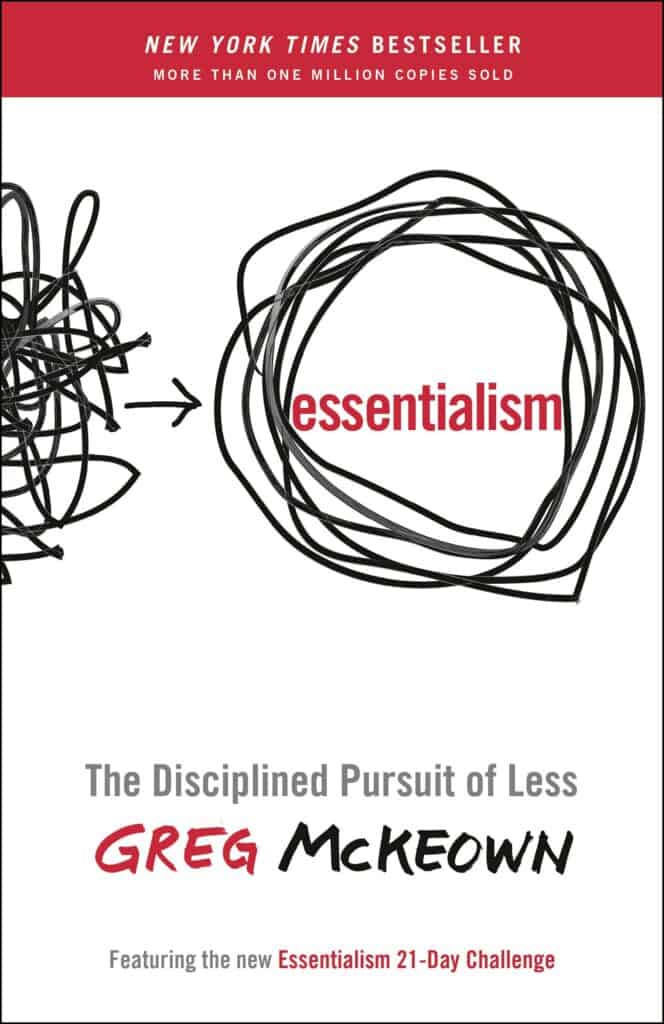Book: Essentialism: The Disciplined Pursuit of Less
Author: Greg McKeown
Reviewed by: Glain Roberts-McCabe
The Premise: In a world consumed with the pursuit of busy, Greg McKeown’s New York Times bestseller challenges the reader to reframe productivity by doing less, but better. The book unpacks the premise that rather than focusing on task and time management, the reader should apply a systemic and selective criterion to determine what things require our precious energy and attention. The book is divided into four key parts: essence, which looks at the mindset of an essentialist; explore, which sets the stage for discerning what is most important to focus on; eliminate, where the reader learns how to cut out the trivial; and execute, in which we focus on creating flow.
The Bottomline: This book had been sitting on my shelf for several years (it was first published in 2014). Since the pandemic, the topic of burnout has been probably the one that our team has heard about the most as leaders wrestle with increasing expectations while navigating through unprecedented change and disruption. With our team at The Roundtable shifting to a four-day workweek, I felt it was critical that I look for ways, as a leader, to reduce the noise and increase our focus on what really matters. Essentialism provides an easy-to-read roadmap that takes you, not only through the steps required to increase your focus but – perhaps more importantly – the mindset shifts you need to make to challenge the assumptions that “more is better.” HP co-founder David Packard famously said, “more organizations will die of indigestion than starvation.” For many leaders, we are so stuffed with priorities and deadlines, we can no longer breathe. Essentialism is a playbook to help you challenge your belief set about what success looks like and how the pursuit of doing less but better, can – in the long run – be the best thing you can do for yourself, your teams and your organization.
Recommendation: Highly recommend. This book is needed now more than ever. If your work boundaries extend beyond your 40-hour workweek, you owe it to yourself and the people you lead to read this book.




